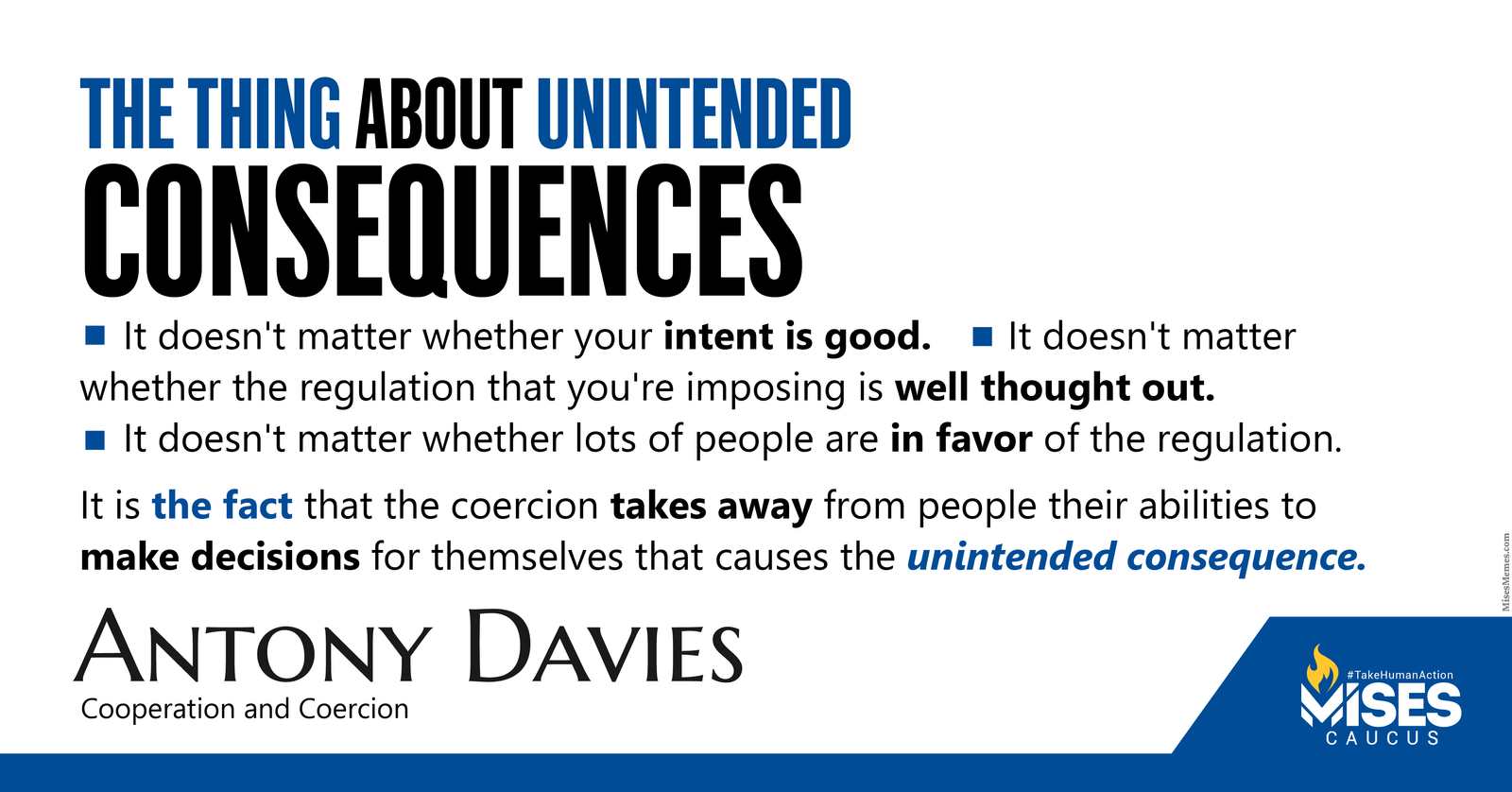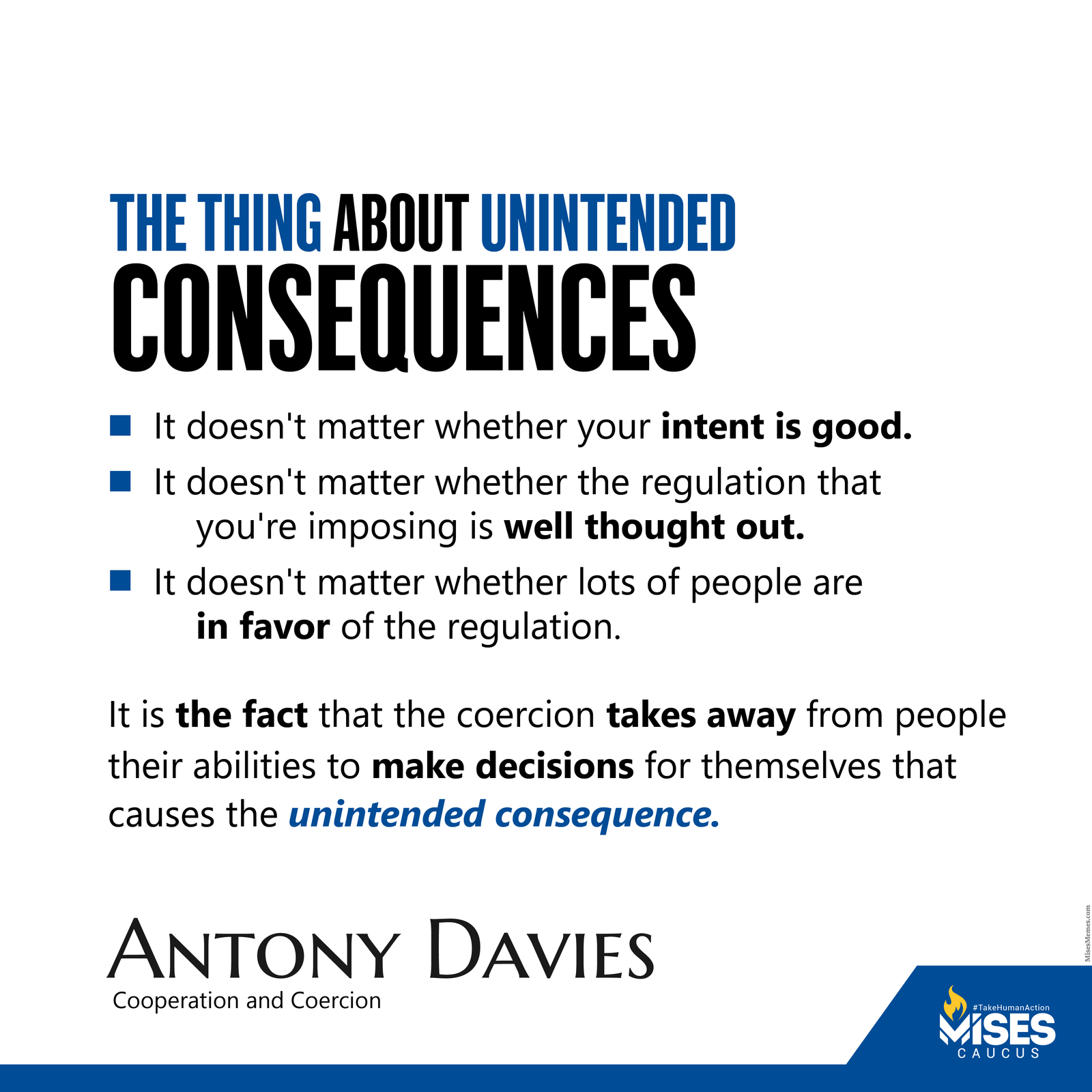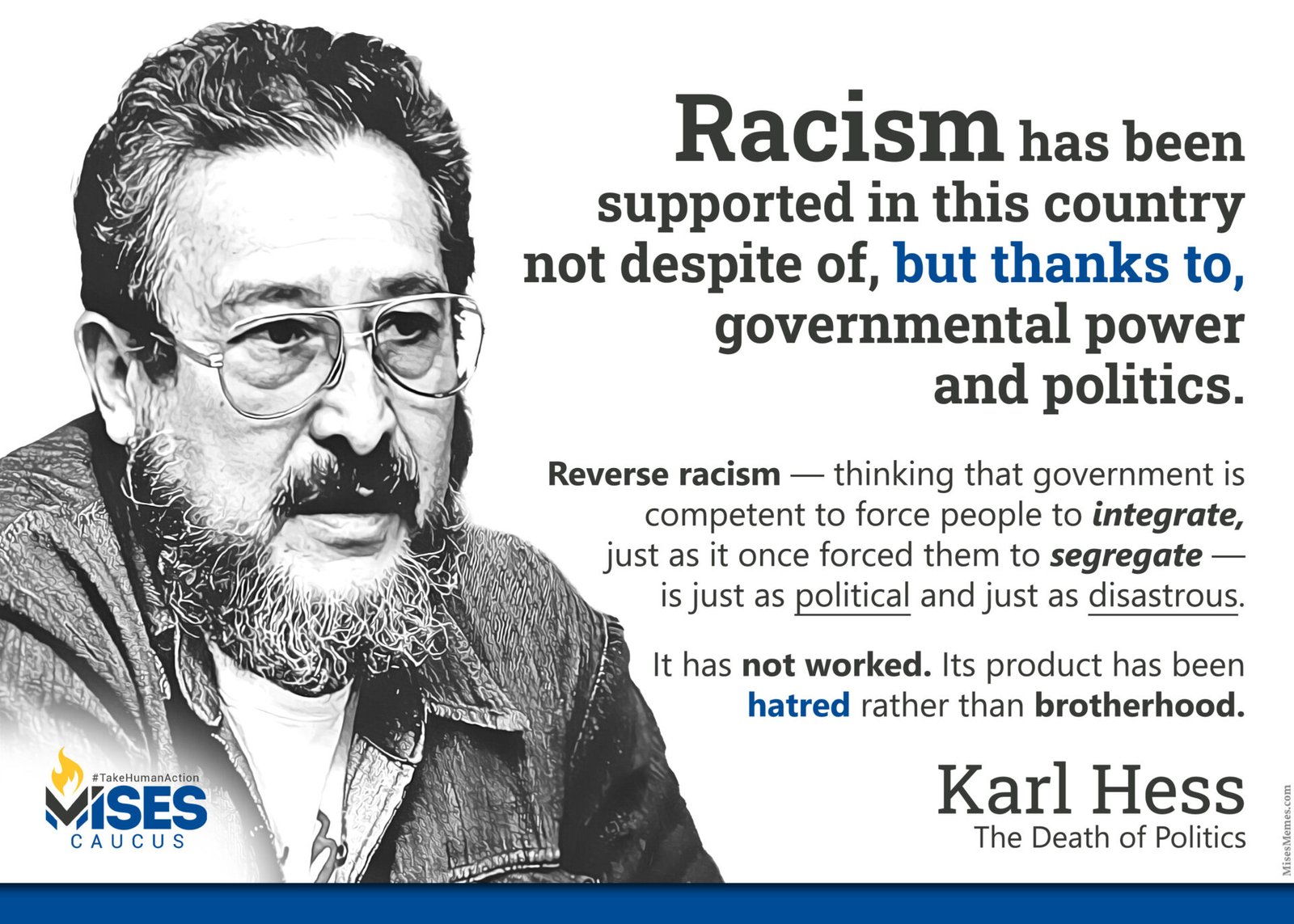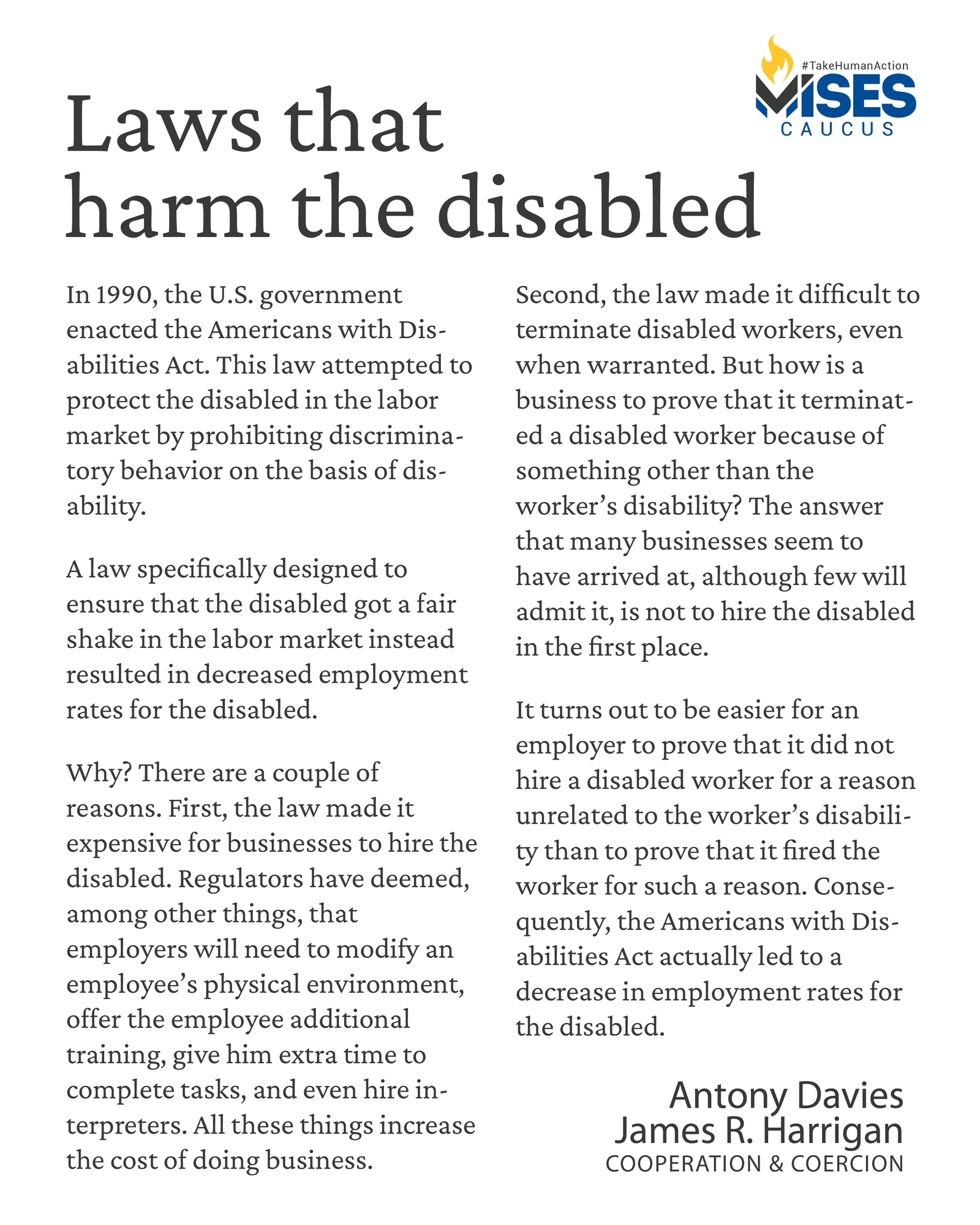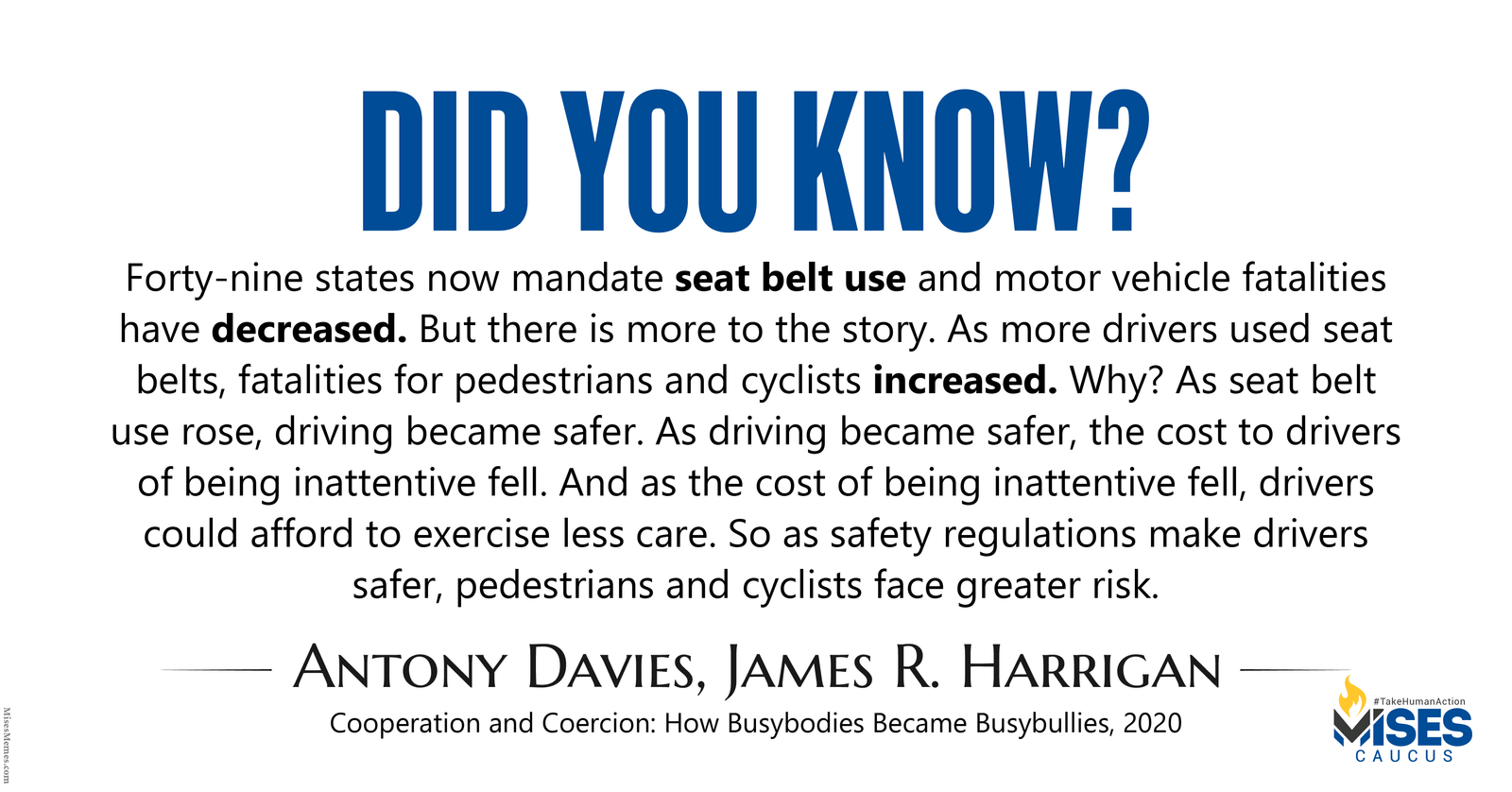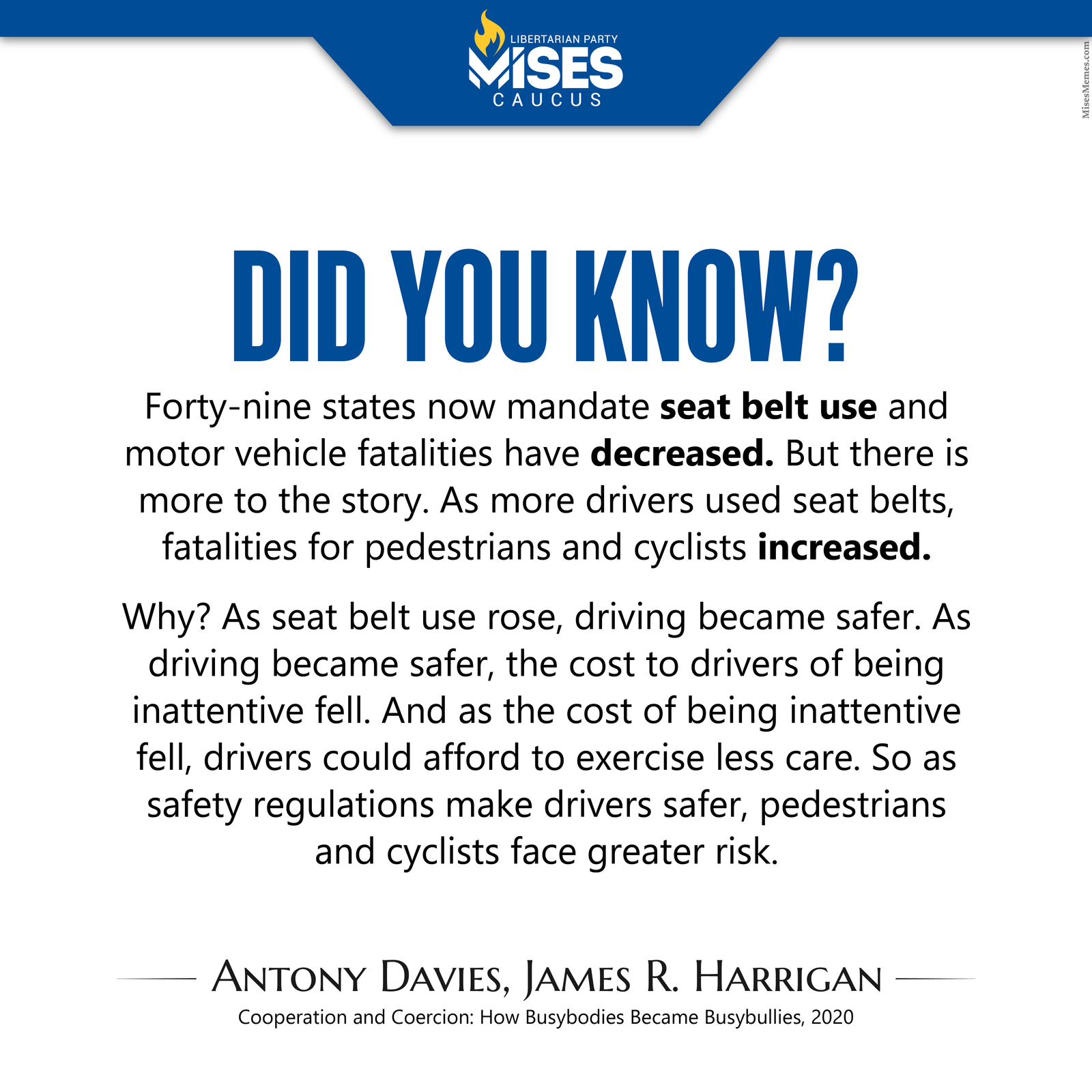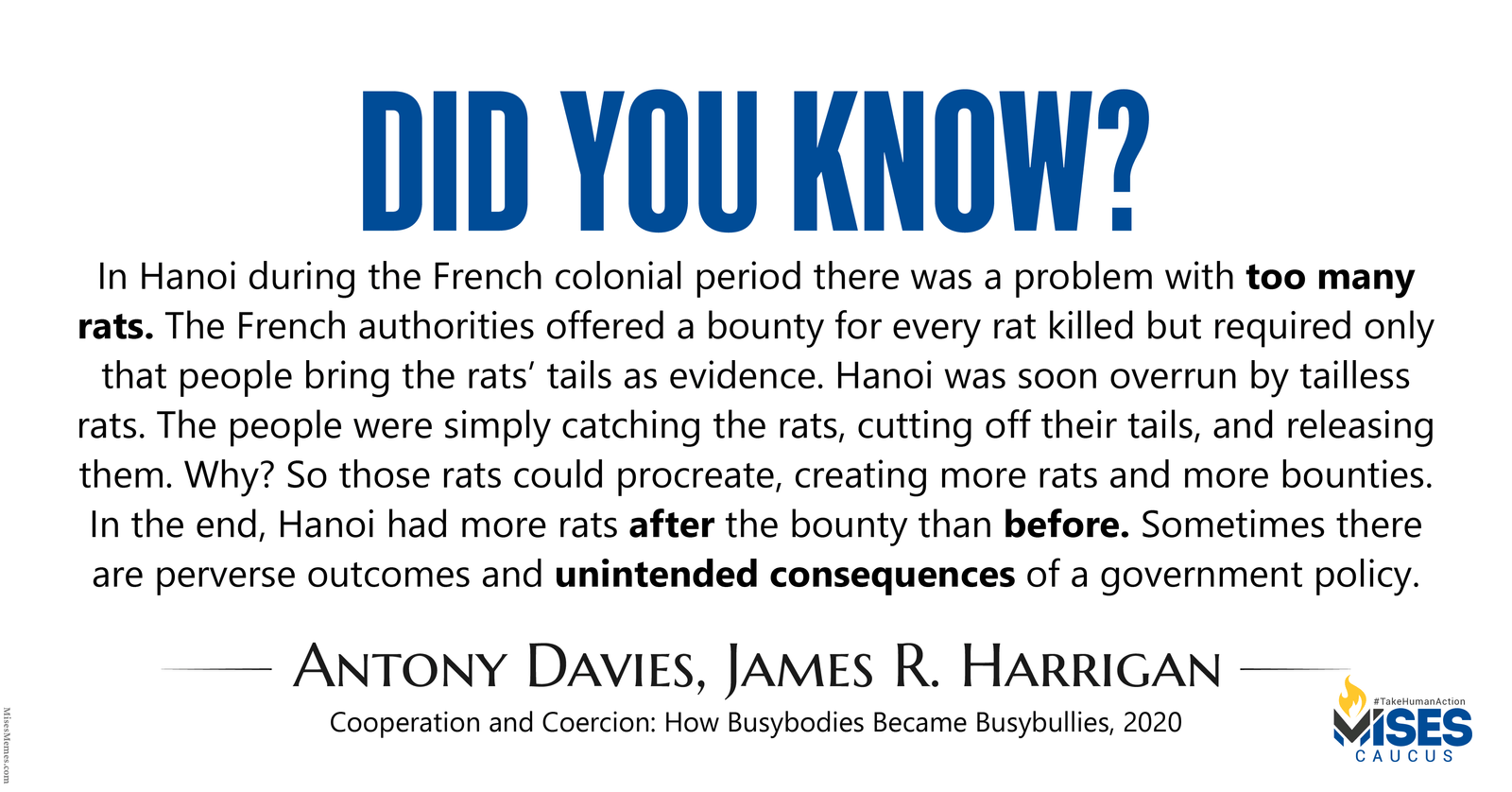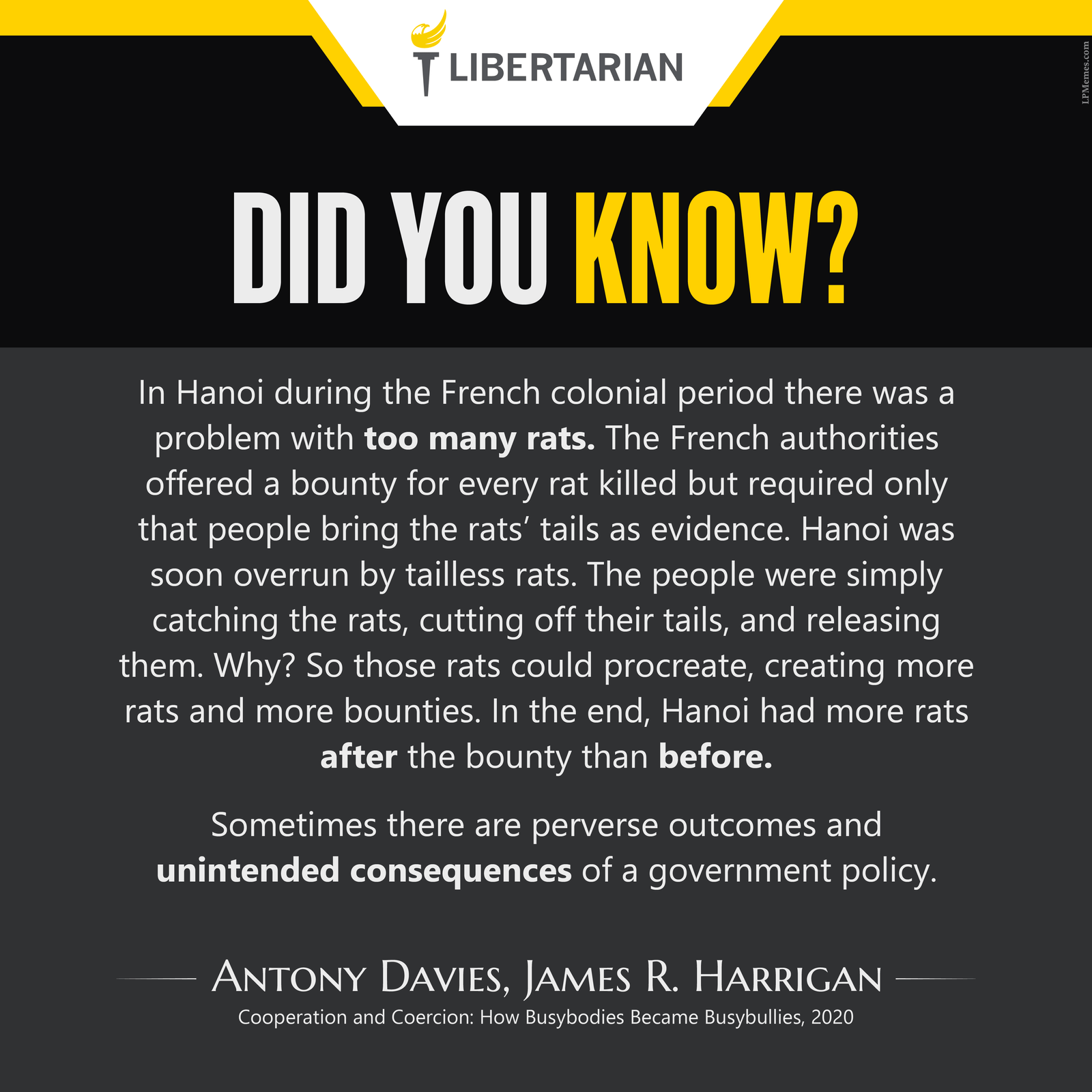The thing about unintended consequences is it doesn’t matter whether your intent is good, it doesn’t matter whether the regulation that you’re imposing is well thought out, it doesn’t matter whether lots of people are in favor of the regulation. It is the fact that the coercion takes away from people their abilities to make decisions for themselves that causes the unintended consequence. —Antony Davies
